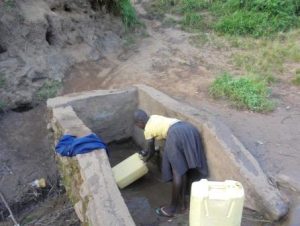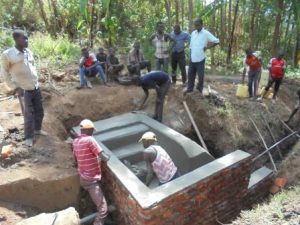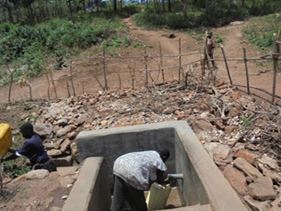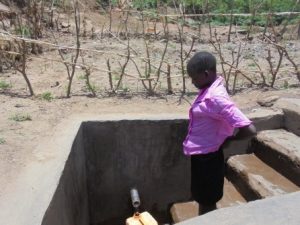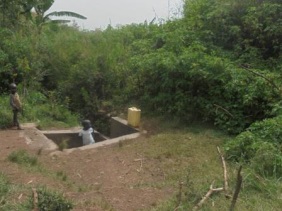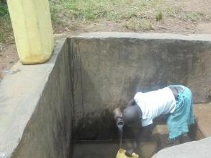Outline of the Follow-up observations
Our priority is placed on responding to the issues and needs of the field in an efficient and effective way.
Since 2015, we have been carrying out follow-up observations one year after the completion of projects in order to understand changing issues and needs.
In FY 2019, the fifth year since we started our follow-up observations, we asked five grass-roots organizations in the Lao PDR, Malawi, Sierra Leone, and Uganda (2 projects) that had been granted the JWF Fund 2018 to conduct follow-up observations. We received consent from the organizations in all the locations except the Lao PDR. With this cooperation, we have been able to conduct our one-year follow-up observations.
This page describes the project Maintenance of spring wells, awareness on hygiene and training of village women water users in Padolo parish in Uganda.
Maintenance of spring wells, awareness on hygiene and training of village women water users in Padolo parish
|
Outlines of the project supported by the JWF Fund 2018 Background:
Main activities:
|
Follow-up observation in 2020
Results of the survey conducted by Mr. Kumakech James of the CUWEDE are as follows:
- Current situations of the repaired spring wells
– The spring wells in Arimo and Amelenju-Avubu are functioning well. The only damage found is that the outlets are getting spill-off due to runways and weak soil around the wells, especially at the Amelenju-Avubu spring well.
– The water sources are maintained monthly and quality of the water is still good and drinkable. It is also safe and for mankind activities.
– It has been noticed that the water volume produced is steady and very reliable throughout the year. Even during dry season, enough water is produced.
- Operation and maintenance system
– The users of the spring well are careful not to dirty the wells and ensure that they mainly use clean containers to fetch water.
– The two spring wells are maintained through informal by-law systems which regulate the use of clean containers for fetching water from the wells.
– The initial live fence erected around the wells was destroyed by stray goats during dry season. The fencing material was palatable to the animals. The water user committee agreed with CUWEDE to use the mobilized funds to erect a new fence around the wells.
– During the follow-up visit, it was noted that some people in the community had tried to wash their clothes near the wells. Community leaders told them not to do so since this is not encouraged by consensus of the water users.
– They have appointed well caretakers supervised by the nine member water user committee elected from among community members.
– In order to operate and maintain the spring wells so that they function well, the water user committee enforces informal by-laws regarding hygiene and sanitation around the wells, mobilizes water users for regular maintenance to ensure effective operations, and contributes a quarterly revolving fund where possible.
- Changes of the beneficiaries
– The users are now using clean water and practicing improved water hygiene. Water-borne diseases have been reduced and no cases of cholera were reported last year, unlike before the wells were rehabilitated. Additionally, the levels of dysentery and typhoid among water users are falling, evidenced by the few cases reported to health centers by the two targeted communities.
– Currently, all households are encouraged to have basic sanitary facilities such as toilet and bath shelter.
Voices from the beneficiaries
|
|
|
|
Mr. Parmu James, 41 years old, a local community leader
|
Photos of the follow up observation
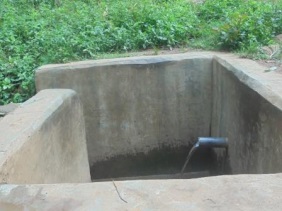 |
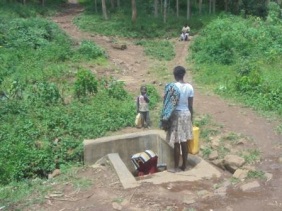 |
| Arimo sring well repaired in 2018 | Water users at the Arimo spring well |
|
|
|
| Amelenju-Avubu spring well repaired in 2018 |
A woman fetching water at the Amelenju-Avubu |
(Reported by Shigenori Asai, Director)
